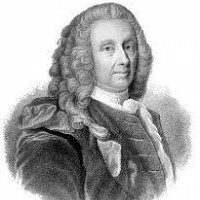Top Ten Best Playwrights of All Time
 William Shakespeare was an English poet, playwright, and actor, widely regarded as the greatest writer in the English language and the world's pre-eminent dramatist.
William Shakespeare was an English poet, playwright, and actor, widely regarded as the greatest writer in the English language and the world's pre-eminent dramatist. Sad so many think Shakespeare is boring. There has been no other playwright who so understood man's strengths and weaknesses. And his command of the English language! I was recently at a performance of the Scottish play, I was laughing at one part and no one else got the humor (which was pure word-play). He was really good at comic relief to break the tension in an intense drama, and then building up the dramam again.
All his plays grasp the human spirit in many ways, and his characters are so memorable that many of us think of them as real people or archetypes of people. Directors of his plays have interpreted them in various ways, and actors have played the characters in various ways. The pleasures and enlightenments he gives us are endless and flexible and adaptable to any age and point of view.
 Samuel Barclay Beckett (13 April 1906 – 22 December 1989) was an Irish avant-garde novelist, playwright, theatre director, and poet, who lived in Paris for most of his adult life and wrote in both English and French. He is widely regarded as among the most influential writers of the 20th century.
Samuel Barclay Beckett (13 April 1906 – 22 December 1989) was an Irish avant-garde novelist, playwright, theatre director, and poet, who lived in Paris for most of his adult life and wrote in both English and French. He is widely regarded as among the most influential writers of the 20th century. His philosophical insights are simplistic, but he deserves credit for creating a vivid, cartoonlike dramatization of intellectual despair.
The heir to Joyce and one of very few writers to master both the dramatic and epic forms - a nonpareil playwright and novelist.
Never tire of his offbeat wit. I could read and watch his plays over and over and come away with a different feeling every time.
 Euripides (c. 480 – c. 406 BC) was a tragedian of classical Athens. He is one of the few whose plays have survived, with the others being Aeschylus, Sophocles, and potentially Euphorion.
Euripides (c. 480 – c. 406 BC) was a tragedian of classical Athens. He is one of the few whose plays have survived, with the others being Aeschylus, Sophocles, and potentially Euphorion.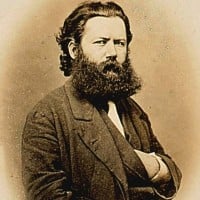 Henrik Johan Ibsen (20 March 1828 – 23 May 1906) was a major 19th-century Norwegian playwright, theatre director, and poet. He is often referred to as "the father of realism" and is one of the founders of Modernism in theatre.
Henrik Johan Ibsen (20 March 1828 – 23 May 1906) was a major 19th-century Norwegian playwright, theatre director, and poet. He is often referred to as "the father of realism" and is one of the founders of Modernism in theatre. There's a great bias against Ibsen in the U.S. , where he is known primarily for A Doll House and Hedda Gabler, with his many other fine plays (Peer Gynt, An Enemy of the People, The Wild Duck, The Master Builder, etc. ) mostly forgotten. Globally, however, he is one of the most respected--and produced--playwrights. By their own admissions, Arthur Miller and George Bernard Shaw would have been nobodys had it not been for Ibsen.
Henrik Ibsen, the father of modern drama. Creator of "A Doll's House", "An Enemy of the People", "The Wild Duck". Who influenced Anton Chekhov, George Bernard Shaw, August Strindberg deserves a higher position on this list.
P.S.
Why does August Strindberg is not on this list
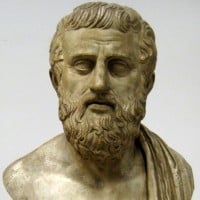 Sophocles (c. 497/6 – winter 406/5 BC) is one of three ancient Greek tragedians whose plays have survived. His first plays were written later than those of Aeschylus, and earlier than or contemporary with those of Euripides. Sophocles wrote 120 plays during the course of his life, but only seven have... read more
Sophocles (c. 497/6 – winter 406/5 BC) is one of three ancient Greek tragedians whose plays have survived. His first plays were written later than those of Aeschylus, and earlier than or contemporary with those of Euripides. Sophocles wrote 120 plays during the course of his life, but only seven have... read more "Antigone", greatest of all plays not written by Shakespeare. As relevant today as it was then. How far can the State go in over riding family and religious obligations
One of the rarest Dramatist ever. We still couldn't be able to write down a play like him.
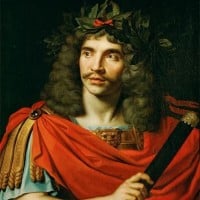 Jean-Baptiste Poquelin, known by his stage name Molière (15 January 1622 – 17 February 1673), was a French playwright and actor who is considered to be one of the greatest masters of comedy in Western literature. He was the official author of court entertainments under the reign of Louis XIV.
Jean-Baptiste Poquelin, known by his stage name Molière (15 January 1622 – 17 February 1673), was a French playwright and actor who is considered to be one of the greatest masters of comedy in Western literature. He was the official author of court entertainments under the reign of Louis XIV. He wrote under a pseudonym to avoid retribution from his critics.
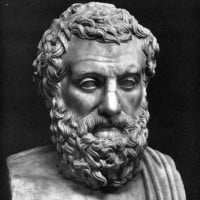 Aeschylus (c. 525/524 – c. 456/455 BC) was an ancient Greek tragedian. He is often described as the father of tragedy. Academics' knowledge of the genre begins with his work, and understanding of earlier tragedies is largely based on inferences from his surviving plays.
Aeschylus (c. 525/524 – c. 456/455 BC) was an ancient Greek tragedian. He is often described as the father of tragedy. Academics' knowledge of the genre begins with his work, and understanding of earlier tragedies is largely based on inferences from his surviving plays. He created tragedy and in one of few whose work has lasted over thousands of years.
The father of tragedy and still unrivaled!
'The reek of human blood smiles out at me. '
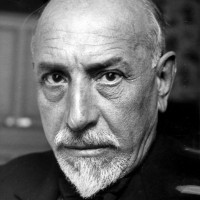
Since he is Italian, not many people consider him and his deeply innovative and revolutionary ideology. If read and understood with critical attitude, he turns out to be a genius. Only Aeschylus, Sophocles, Shakespeare and probably Ibsen could beat him.
Ah yes...Italians are always overlooked. just ask Leonardo da Vinci.
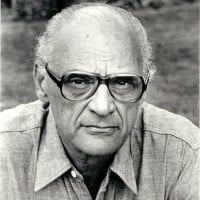 Arthur Asher Miller (October 17, 1915 – February 10, 2005) was an American playwright, essayist, and figure in 20th-century American theater. He was often in the public eye, particularly between the late 1940s and early 1960s. During this time, he was awarded the Pulitzer Prize for Drama, testified... read more
Arthur Asher Miller (October 17, 1915 – February 10, 2005) was an American playwright, essayist, and figure in 20th-century American theater. He was often in the public eye, particularly between the late 1940s and early 1960s. During this time, he was awarded the Pulitzer Prize for Drama, testified... read more In all my years of high school education (currently a Junior), Arthur Miller has been an excellent choice for projects in my AP American Lit class. His books flow like Nutella, unlike the banal, monotone literature received from more "elevated" and "scholarly" playwrights such as Shakespeare.
The Crucible is an absolutely brilliant work. All of Arthur Miller's plays are. I have not read a playwright that I appreciate the way I appreciate him. Even Shakespeare, who I do passionately love, has not affected me the way Miller has.
 Oscar Fingal O'Flahertie Wills Wilde (16 October 1854 – 30 November 1900) was an Irish playwright, novelist, essayist, and poet. After writing in different forms throughout the 1880s, he became one of London's most popular playwrights in the early 1890s. He is remembered for his epigrams, his novel... read more
Oscar Fingal O'Flahertie Wills Wilde (16 October 1854 – 30 November 1900) was an Irish playwright, novelist, essayist, and poet. After writing in different forms throughout the 1880s, he became one of London's most popular playwrights in the early 1890s. He is remembered for his epigrams, his novel... read more Definitely a great prose writer and had a good knowledge in literature, but this man wrote bundles that's it, there is no meaning in his work, and his ideologies are full of crap.
"To live is the rarest thing in the world most people exits that is all"
Maybe he took his own quote too seriously, he cheated on his wife as a result, and gave his sons a childhood where they saw their mother crying every day.
He wrote too much rubbish just to defend his act, he was a copy cat, and faced too much critisism in his early career.
Most of his quotes make no sense to me, he was more like a "talker".
 Thomas Lanier "Tennessee" Williams III was an American playwright. Along with Eugene O'Neill and Arthur Miller, he is considered among the three foremost playwrights of 20th-century American drama.
Thomas Lanier "Tennessee" Williams III was an American playwright. Along with Eugene O'Neill and Arthur Miller, he is considered among the three foremost playwrights of 20th-century American drama. Nothing moves me like the plays of Williams. Played by amateurs or professionals, they always seem to work unlike most other plays. The writing is exquisite and the drama, compelling!
Yesterday I watched 'The glass Menagerie' and that once more confirmed my view of Williams as a great dramatic poet.
The realism in his plays is fantastic. A genuine talent.
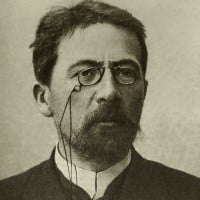 Anton Pavlovich Chekhov (29 January 1860 – 15 July 1904) was a Russian playwright and short story writer, who is considered to be among the greatest writers of short fiction in history... read more
Anton Pavlovich Chekhov (29 January 1860 – 15 July 1904) was a Russian playwright and short story writer, who is considered to be among the greatest writers of short fiction in history... read more Yes, must be within top ten very easily. A theatrical equivalent of Rembrandt, painted human life in darker tones unimaginably well.
Number two behind Will. No question. Ability to use the stage, as well as to create dramas, and consummate irony.
Not sure how you can be a master of 'unending hopes' but he was certainly a great playwright.
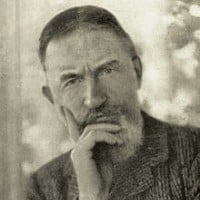 George Bernard Shaw, known at his insistence simply as Bernard Shaw, was an Irish playwright, critic, polemicist, and political activist. His influence on Western theatre, culture and politics extended from the 1880s to his death and beyond.
George Bernard Shaw, known at his insistence simply as Bernard Shaw, was an Irish playwright, critic, polemicist, and political activist. His influence on Western theatre, culture and politics extended from the 1880s to his death and beyond. Shaw was a towering figure; deserves to be much further up the list.
This writes is especially a brilliant drama literature with the mental of a true genius.
I have always revered his work apart from the comedies.
He is a better playwright than Shakespeare.
 Alexandre Dumas, born Dumas Davy de la Pailleterie (24 July 1802 – 5 December 1870), also known as Alexandre Dumas, père, was a French writer. His works have been translated into nearly 100 languages, and he is one of the most widely read French authors.
Alexandre Dumas, born Dumas Davy de la Pailleterie (24 July 1802 – 5 December 1870), also known as Alexandre Dumas, père, was a French writer. His works have been translated into nearly 100 languages, and he is one of the most widely read French authors.
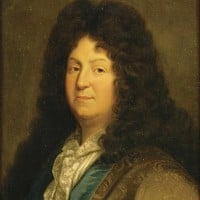 Jean Racine, baptismal name Jean-Baptiste Racine (22 December 1639 – 21 April 1699), was a French dramatist, one of the three great playwrights of 17th-century France (along with Molière and Corneille), and an important literary figure in the Western tradition.
Jean Racine, baptismal name Jean-Baptiste Racine (22 December 1639 – 21 April 1699), was a French dramatist, one of the three great playwrights of 17th-century France (along with Molière and Corneille), and an important literary figure in the Western tradition. Truly, the greatest neo-classical writer. His myth-inspired plays ally great sparseness and economy of form with the purity and simple elegance of language in wrenching tragedies inspired by the tremendous passions of heroes and gods. His greatest plays, Athalie, Phèdre, Iphigénie, Andromaque, Bérénice, all portraits of major female figures of Greek and Hebraic legend, showcase vibrant energy and magnificently contained emotion.
Known by contemporaries as 'the Clean Racine'.
Noel Coward was a Brilliant playwright and had a unique style which has lasted through the ages.
Dialogue like a crisply ironed white shirt.
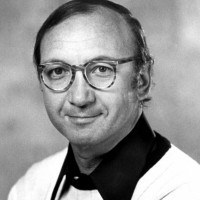
More human beings have seen Neil Simon plays than ANY other playwright in history!
That's #1, numero uno, the Top Dude; even though Shakespeare had a 500 year head start and, certainly, has always been produced and popular. Still, Simon is tops. Live with it!
Looked down upon by hi-brows but a master of his craft.
Great humour and a wry tolerance of human frailty.
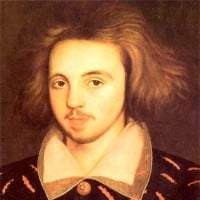
He only wrote a few plays but those inspired many of Shakespeare's plays, without him we might not have the Shakespeare with know today.
A quiet achiever. Nothing flashy about these plays but deeply felt.
He can see quite clearly through those thick-lensed specs.
Northern drollery laced with melancholy.
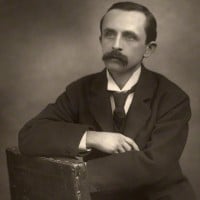 Sir James Matthew Barrie, 1st Baronet, OM (9 May 1860 – 19 June 1937) was a Scottish novelist and playwright, best remembered today as the creator of Peter Pan.
Sir James Matthew Barrie, 1st Baronet, OM (9 May 1860 – 19 June 1937) was a Scottish novelist and playwright, best remembered today as the creator of Peter Pan.
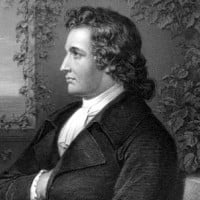 Johann Wolfgang Goethe (28 August 1749 – 22 March 1832) was a German writer and statesman. His body of work includes epic and lyric poetry written in a variety of metres and styles; prose and verse dramas; memoirs; an autobiography; literary and aesthetic criticism; treatises on botany, anatomy, and... read more
Johann Wolfgang Goethe (28 August 1749 – 22 March 1832) was a German writer and statesman. His body of work includes epic and lyric poetry written in a variety of metres and styles; prose and verse dramas; memoirs; an autobiography; literary and aesthetic criticism; treatises on botany, anatomy, and... read more One of the true-blue, old-style 'word bottlers'.
 Johann Christoph Friedrich von Schiller (10 November 1759 – 9 May 1805) was a German poet, philosopher, physician, historian, and playwright.
Johann Christoph Friedrich von Schiller (10 November 1759 – 9 May 1805) was a German poet, philosopher, physician, historian, and playwright. He combines Shakespeare's human insight and depth with total mastery of classical forms.
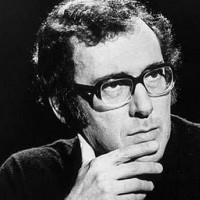
The early plays are already classics, especially 'The Caretaker' and 'The Homecoming'. Certainly among the greatest plays of the 20th century.
Giant of British playwrights. A unique talent.
In a class of his own. Comparisons are futile.
